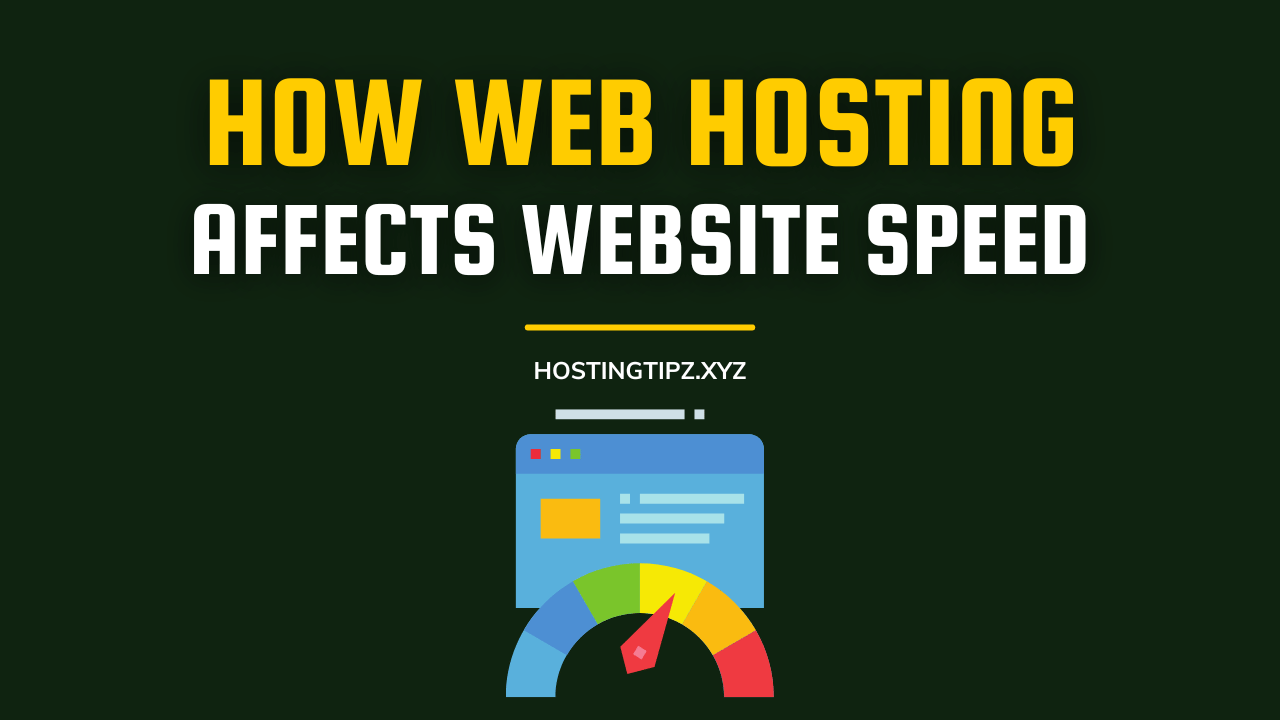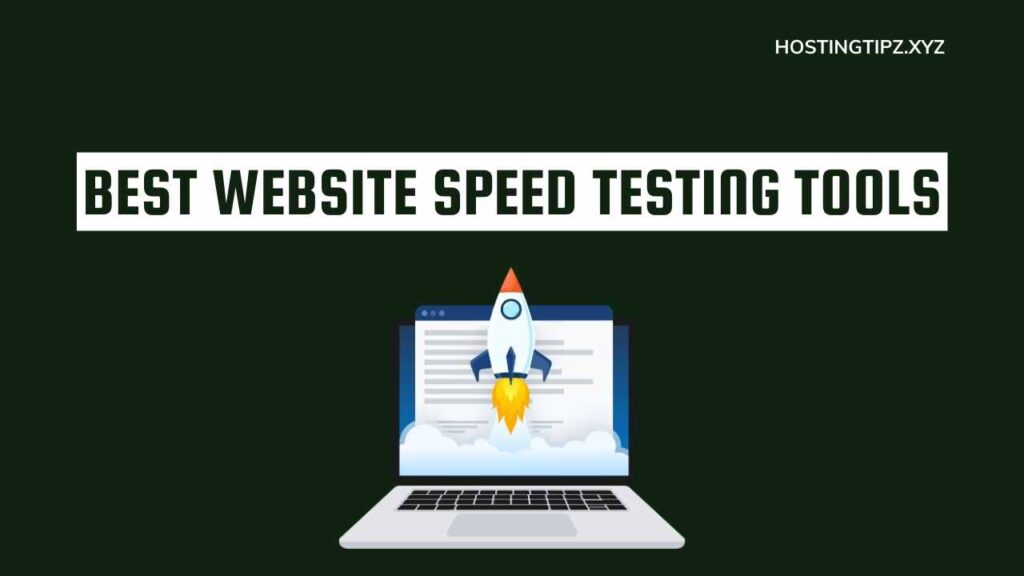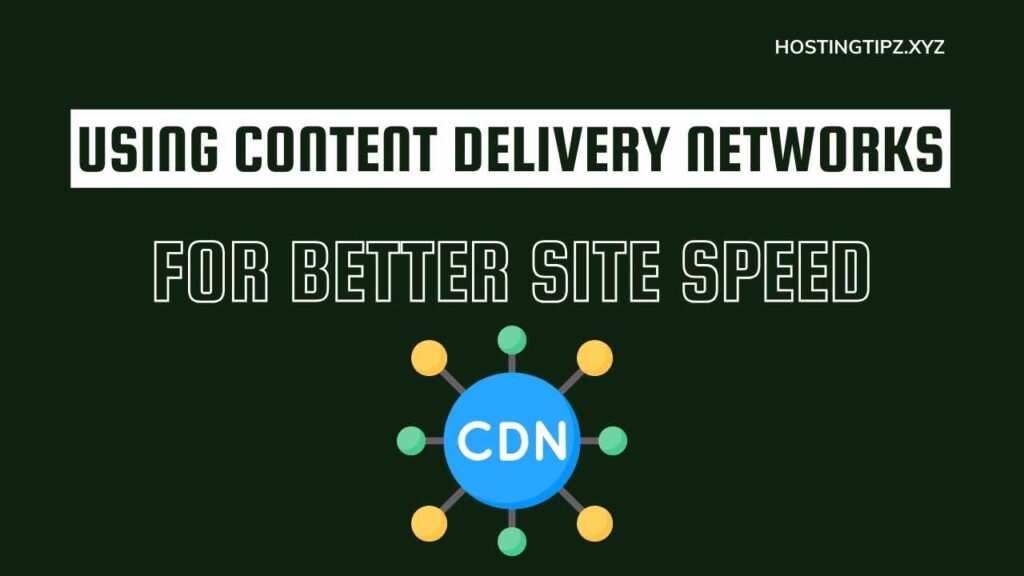Web hosting has a significant impact on the functionality and speed of a website. Fast loading times and ideal performance are crucial for developing a successful online presence. This article will examine the different ways that web hosting may affect the speed and functionality of websites and explain why it is crucial to pick the best hosting company for your website’s requirements.
Website speed and performance have a huge impact on the user experience, search engine results, and ultimately the success of a website in today’s digital world, where attention spans are short and competition is tough. How quickly and effectively a website loads and operates is greatly influenced by web hosting, the service that makes websites available via the internet
Table of Contents
Understanding Web Hosting
Companies that provide web hosting are those that allocate server resources and space to store website files and make them available to users online. A user’s browser contacts the web hosting server when they visit a website, and the server responds by sending the requested files to the user’s device.
Resources on the server and website speed
The resources that the hosting company allots have a significant impact on a website’s performance. Resources like CPU power, RAM, and storage space have a direct impact on the speed of the website. Poor user experiences can result from a lack of resources, which can cause slow page loads and unresponsive pages.
Comparison of shared and dedicated hosting
Multiple websites are hosted on the same server under a shared hosting arrangement, sharing its resources. Although this is a cost-effective choice, it can result in slower loading speeds during periods of high demand. However, dedicated hosting gives a single website exclusive server resources, which leads to quicker load times and greater performance.
Location of the Server’s Effect
The physical location of the hosting server can have a significant impact on website speed. Longer response times and slower loading times may occur if the server is located far from the intended audience. This problem can be lessened by selecting a hosting company with servers that are located close to the intended audience.
Timeliness and Its Importance
The amount of time a website is available to users without any interruptions is referred to as uptime. A trustworthy hosting company will guarantee high uptime, reducing the possibility of a website being inaccessible or having slow loading times. Downtime can have a significant impact on user experience, search engine rankings, and overall website performance.
Transfer of Data and Bandwidth
The volume of data exchanged between a website’s visitors and server is referred to as bandwidth. Overusing the bandwidth allotted by hosting plans might cause the website to load more slowly or possibly be temporarily suspended. It is essential to pick a hosting package with enough bandwidth to accommodate the anticipated load.
Time to Server Response
To ensure rapid and seamless user experiences, it is advised to choose a hosting company with quick server response times. Server hardware, software optimization, and server load are some of the variables that determine server response time. The responsiveness of a website can be improved by selecting a reliable hosting company.
The Function of Content Delivery Networks (CDNs)
Content Delivery Networks (CDNs) can significantly improve the speed and functionality of websites. The content of websites is distributed through CDNs over numerous servers positioned all over the world. The CDN reduces distance and speeds up loading times by delivering material from the server closest to the user when they browse a website. Websites can load more quickly for users everywhere by using a CDN.
Website performance and security measures
Web hosting companies have a significant impact on the security of websites. Websites are shielded from harmful assaults, unlawful access, and data breaches by a secure hosting environment. On the other hand, performance issues might occasionally result from overly rigorous security measures. It is essential to pick a hosting company that strikes a balance between strong security measures and ideal website loading times.
Optimizing Website Speed
While web hosting is a significant factor in website speed, there are additional steps you can take to optimize your website’s performance. These include:
- Reducing the size of files and photos while maintaining quality.
- Reducing the number of characters in HTML, CSS, and JavaScript code to speed up page loads.
- By enabling caching, website data can be temporarily stored on users’ devices, lessening the demand on servers and enhancing subsequent page loads.
- Lazy loading is used, which delays the loading of images and videos until they are seen on the screen.
- To Ensure effective performance, the code and database of the website are routinely monitored and optimized.
Mobile Responsiveness and User Experience
It is vital to make sure that your website is mobile-friendly, given the rise in the use of mobile devices for browsing. Websites that use responsive design can adjust to various screen sizes, providing a smooth user experience on mobile devices like smartphones and tablets. Not only can a mobile-friendly website increase consumer satisfaction, but it also benefits search engine rankings.
Choosing the Right Web Hosting Provider
Selecting the right web hosting provider is essential for ensuring optimal website speed and performance. Consider the following factors when making your decision:
- Reputation and reliability of the hosting provider.
- Available server resources and scalability options.
- Server locations and their proximity to your target audience.
- Uptime guarantees and customer support availability.
- Security measures and backup options.
- Pricing and hosting plan features.
Factors to Consider When Selecting a Hosting Plan
When choosing a hosting plan, consider the following factors to meet your website’s specific needs:
- Traffic expectations and bandwidth requirements.
- The size and complexity of your website.
- The need for specialized features or applications (e.g., e-commerce functionality, content management systems, etc.).
- Support for the programming languages and frameworks used in your website.
- Scalability options to accommodate future growth.
FAQs
How does web hosting affect website speed?
Web hosting affects website speed through server resources, server response time, server location, and the use of content delivery networks (CDNs).
Can shared hosting negatively impact website speed?
Shared hosting can sometimes result in slower loading times during peak traffic periods due to the sharing of server resources among multiple websites. However, reputable hosting providers manage server load effectively to minimize such impacts.
Why is server response time important for website performance?
Server response time directly affects how quickly a website loads and interacts with users. A slow server response time can lead to longer loading times, unresponsiveness, and a poor user experience.
How does server location affect website speed?
The physical location of the hosting server relative to the website’s target audience can impact website speed. If the server is geographically distant, it can result in longer response times and slower loading speeds. Choosing a hosting provider with servers strategically located closer to your target audience can help mitigate this issue.
What is the role of a Content Delivery Network (CDN) in website performance?
A Content Delivery Network (CDN) consists of multiple servers located in different geographic regions. By distributing website content closer to users, CDNs reduce the distance and improve loading times. Utilizing a CDN can significantly enhance website speed and performance.
Conclusion
Hosting services have a huge effect on how quickly and smoothly a website functions. The effectiveness of a website relies heavily on factors like server resources, server location, uptime, bandwidth, and security measures. You can build a quick and high-performing website that provides a fantastic user experience by picking a trustworthy hosting provider, improving site speed, and giving thought to the demands of your intended audience.
Also Read:
- Basics of Web Hosting | What is it & Different Types of Web Hosting
- 11 Security Features to Look for in a Web Hosting Service
- Pros and Cons of Dedicated Hosting for High-Traffic Websites
- How to Choose the Right Web Hosting Provider for Your Site?



